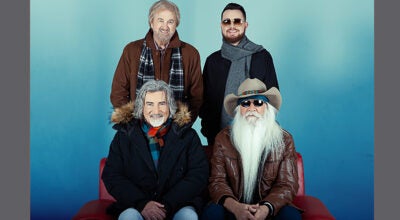Raising a puppy proves challenging
Published 10:32 pm Saturday, January 30, 2010
When you first bring home a new puppy everyone is excited. A new family member has just arrived and now is the time to set the rules and training should begin from day one.
Eventually the cute nipping and chewing will turn into biting and destroying.
To effectively train your puppy, you must first understand his developmental stages.
Most puppies will arrive in their new homes between six to 10 weeks of age. This period of their life is called the first fear imprint stage.
During this stage puppies are extremely impressionable and sensitive to both positive and negative environmental experiences.
It is therefore best to avoid any training that would involve yelling, choke chain collars, squirt bottles, shock collars, or any other strong correction.
Force or negative training techniques to teach an obedience cue should be avoided at any age, but especially during this stage of their life.
The second developmental period of a puppy’s life is called the optimum bonding period and this begins at seven weeks of age.
This is the time during which a puppy is most impressionable and open to bonding with other dogs and/or people.
In the wild, puppies younger than seven weeks of age would typically have limited interaction with other pack members outside of their litter.
At seven weeks of age they are typically strong and active enough to interact with other pack members. It is very important that proper socialization begins at this age.
This would consist of avoiding stressful or overwhelming situations. Interaction with humans should be positive, mild, and gentle. Avoid forcing your puppy to explore new things, instead expose him to new things and let him explore them at his own pace.
The third stage of their life is called the general socialization period and this occurs between seven and 16 weeks of age.
Many dogs that are nervous and fearful later in life are thought to have been abused. While this could be true, more often than not, these dogs were most likely not properly socialized during this critical stage of life.
Dogs that were not fortunate enough to be socialized can sometimes be rehabilitated, but the process can be time-consuming and very labor intensive.
Dogs that are not properly socialized become a liability for the owner, because these dogs are a much higher bite risk than a properly socialized dog.
By becoming familiar with these puppy developmental periods, you will be better equipped to train and shape your puppy into a healthy adult dog. Proper socialization is the key. It is much easier to set a dog on the right path as a puppy than to go back and fix their “childhood.” Remember, every dog deserves to be treated like a show dog.
Tony Barker, The BARKer Shop




